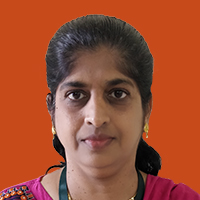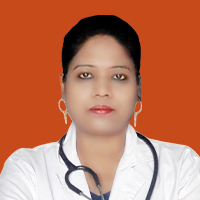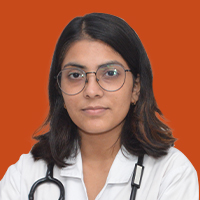

Successful Treatments
Clinics
Doctors
Dandruff is a common problem of the scalp that occurs in the form of white and yellowish flakes along with itching and irritation. It is not a serious problem in itself, but if dandruff persists for a long time, it affects an individual’s confidence level and the health of their hair. Ayurvedic treatment of dandruff focuses on treating the underlying cause of the problem, balancing the doshas, nourishing the scalp, and promoting healthy hair.
What Is Dandruff?
Dandruff is characterized by an increase in shedding of dead cells from the scalp, resulting in visible flakes appearing on the hair, shoulders, and clothing. It may be associated with itching, irritation, as well as greasy or dry scalps. Although natural flaking of cells is part of normal health, the occurrence of dandruff is associated with an imbalance of the scalp, which may be caused by factors associated with lifestyle, diet, or dosha.
What Are The Types of Dandruff?
Dandruff is not of the same type for everyone; it may come in different forms depending on your condition, oiliness, or any other underlying issues. Knowing the type of dandruff that affects you is important because it comes with unique features that may require different approaches to solving it.
- Dry Skin Dandruff: This is the most common type of dandruff in winter. It is caused by the absence of moisture in the scalp, resulting in the shedding of dead skin in small white flakes.
- Oily Scalp Dandruff: As the name suggests, in this type of dandruff, yellowish oily scales are visible on the scalp. These are formed when oil, dirt, and dead skin accumulate on the scalp.
- Fungal Dandruff (Seborrheic Dermatitis): Caused by the overgrowth of Malassezia fungus, this type leads to inflammation, irritation, and large oily flakes. It can affect not only the scalp but also other oily areas like the eyebrows and sides of the nose.
- Product Build-Up Dandruff: As the name implies, this type of dandruff is caused by the use of hair gels, sprays, or conditioners.
- Scalp Psoriasis: In this type of dandruff, red patches are visible on the scalp along with silver scales. It is a serious type of dandruff and needs proper treatment.
What Are The Causes of Dandruff?
There are several causes of dandruff, ranging from the health of the scalp to one’s personal habits. Learning about the causes of dandruff will enable one to manage the condition better.
- Seborrheic Dermatitis: A condition where the scalp becomes oily, irritated, and scaly, often causing persistent flakes and itching.
- Malassezia Fungus: A fungus that lives on the scalp and thrives on the oils produced by the scalp. When the fungus overgrows, it causes irritation and flakes.
- Dry Skin: Common during winter when the skin dries up due to low humidity, resulting in flakes and itchiness.
- Sensitivity to Hair Products: Harsh shampoos, conditioners, or chemical treatments can irritate the scalp and worsen flaking.
- Poor Diet and Stress: Lack of proper nutrition, too much oily and sweet food, and too much stress may cause dandruff.
- Hormonal Changes: Changes that take place during puberty, menstruation, or menopause that cause an increase in oil production.
- Environmental Factors: Exposure to too much pollution, too much dust, too much cold, or too much dry air may cause dandruff.
Signs & Symptoms Of Dandruff
Dandruff can vary in severity, but the most common signs make the condition quite evident and, at times, uncomfortable to deal with. Recognizing the symptoms at an early stage will help you select the best treatment option for the condition and prevent it from getting worse.
- White or Yellow Flakes: These flakes, dry and oily in nature, can be found on the scalp, hair, and even shoulders.
- Itchy Scalp: It is quite common for the individual to experience itchy symptoms, leading to scratching, which can be uncomfortable.
- Redness or Irritation: The condition can also cause the scalp to turn red and itchy, especially in severe cases of dandruff.
- Dryness or Oiliness: The condition can also make the scalp extremely dry or oily, depending on the nature of the dandruff.
- Hair Fall: Sometimes, the itchy symptoms can also cause the individual to experience a loss of hair.
- Foul Odor: In some severe cases, the fungus can cause the individual's scalp to develop an unpleasant smell.
Risk & Complications Associated With Dandruff
If dandruff is left untreated, it can lead to a number of complications. It can cause itching and irritation on the scalp. Excessive itching can lead to infections and hair damage. In severe cases of dandruff, as in the case of fungal dandruff and psoriasis, dandruff can occur in the eyebrows, ears, and other areas.
Ayurvedic Understanding of Dandruff
In Ayurvedic medicine, dandruff occurs mostly because of an imbalance of Vata and Kapha doshas. If Vata dosha is out of balance, the scalp dries out and flakes. If Kapha dosha is out of balance, oil and flakes develop. Other factors that can contribute to dandruff are poor digestion, stress, an irregular schedule, and exposure to environmental toxins. These factors can cause an imbalance of Vata and Kapha doshas in the scalp. This makes the scalp more prone to flaking and itching. Ayurvedic medicine looks at dandruff as a problem that affects the entire body and not just the scalp.
Jiva Ayurveda's Treatment Approach For Dandruff
Jiva Ayurveda’s approach to dandruff is comprehensive, root cause-focused, and centered around balancing the doshas, calming the scalp, and rejuvenating hair health. It attempts to balance Pitta and Kapha doshas, remove toxins (Ama), calm the scalp, and prevent dandruff.
Core Principles of Jiva Ayunique Treatment Protocol
1. HACCP-Certified Ayurvedic Medicines
Jiva’s unique range of ayurvedic medicines is specifically designed to reduce inflammation of the scalp, soothe itches, and normalize scalp health.
- Flake reduction & scalp nourishment: Marichyadi Thailam and Daru Harida help calm redness, itching, and visible flakes.
- Detoxification & immunity support: Giloy and Neem purify the body of toxins (Ama) and strengthen immunity to prevent recurrence.
- Dosha balancing: Medicines are designed to balance Pitta (heat and inflammation) and Kapha (oiliness and sticky flakes) doshas, addressing the internal causes of dandruff.
2. Panchakarma & Therapies
Ayurveda offers external and internal support to soothe itches, calm flakes, and balance doshas.
- Shirodhara: Pouring of warm oil on the forehead to calm the nervous system and reduce stress-induced dandruff.
- Abhyanga (Herbal Oil Massage): The scalp massage with oil at a high temperature stimulates blood circulation, strengthens hair growth, and relieves irritation.
- Nasya (Nasal Therapy): The application of medicated oils through the nasal passage opens up channels, regulates scalp balance, and promotes overall scalp health.
3. Diet & Lifestyle (Ahara & Vihara)
A healthy diet and a healthy lifestyle are vital for a healthy scalp, fewer flakes, and overall prevention.
- Nourishing and warm food: Include soups, vegetables, and grains that help maintain digestive balance and balance doshas.
- Anti-inflammatory herbs and spices: Include ginger, turmeric, coriander, and Tulsi, which help reduce Pitta and strengthen immunity.
- Avoid: Avoid oily, fried, processed, and spicy food that can trigger scalp oiliness and Pitta.
- Lifestyle: Include regular hair care habits, manage your stress levels, avoid using chemical-based products, and protect your scalp from environmental pollutants.
4. Yoga & Mindfulness
Yoga and meditation help reduce scalp irritations caused by high levels of stress, which are one of the main causes of dandruff.
- Gentle Yoga: Practice headstands, shoulder stretches, and neck stretches that help increase blood circulation.
- Pranayama (Yoga Breathing Techniques): Practice deep, slow, and natural breathing that calms your mind and reduces scalp irritations.
- Meditation & Mindfulness: Practice meditation and mindfulness that help reduce emotional upsets that trigger Pitta imbalance.
Ayurvedic Medicines for Dandruff
Ayurveda makes use of herbal medicines that help flakes go away, reduce itchy sensations, balance oil production, and generally help with scalp health. These herbal medicines work from inside the body, correcting any internal imbalances that lead to dandruff.
Neem: Due to its antibacterial and antifungal attributes, it is used to reduce scalp infections, itchy sensations, and inflammation.
Amla (Indian Gooseberry): It nourishes the scalp, reduces heat (Pitta), and promotes healthy hair growth.
Bhringraj: Strengthens hair roots, improves blood circulation on the scalp, and reduces dryness and flaking.
Triphala: Assists with detoxifying the body, thus improving scalp health from the inside.
Giloy: Increases immunity and reduces inflammation that might lead to an itchy scalp.
The herbal medicines work together to:
- Control fungal growth
- Reduce itchy and flaky scalp
- Nourish the scalp with natural care
- Maintain a healthy scalp for a lifetime
These medicines should be taken only under the supervision of a qualified Ayurvedic practitioner for safe and effective results.
When to Seek Medical Care
In case your dandruff is not responding to home remedies or if there is too much itching, redness, tenderness, hair loss, or if flakes are spreading beyond your scalp, it is best to see a qualified doctor or an Ayurvedic expert. Timely medical attention will help prevent infection and discomfort, and will bring back health to your scalp naturally.
Jiva’s Evidence-Based Treatment Process
At Jiva Ayurveda, dandruff treatment begins with understanding the root cause rather than just managing visible flakes. Using traditional Ayurvedic assessment methods combined with personalized care, the treatment focuses on restoring internal balance and promoting long-term scalp health.
- Nadi Pariksha: Starting with Nadi Pariksha, Jiva's certified Ayurvedic doctors use this traditional pulse diagnosis to detect imbalances and assess organ health, which is crucial for diagnosing Dandruff accurately.
- Prakriti Analysis: Understanding your unique physical and psychological patterns allows us to tailor a Dandruff treatment plan that not only addresses symptoms but also aligns with your inherent constitution for lasting health.
- Samprapti Ghatak (Pathogenesis): Our practitioners investigate the progression of dandruff by examining dietary habits, lifestyle, and mental health factors. This thorough analysis helps identify specific triggers that need to be addressed for targeted, individualised treatment.
- Chikitsa Sutra (Personalised Treatment Plan): We then create a detailed Dandruff treatment plan, which consists of diet modifications, lifestyle adjustments, herbal medications, and specific therapies that aim to restore dosha balance and enhance hair health.
- Continuous Monitoring & Amendments: Continuous tracking of treatment effectiveness allows us to make necessary adjustments, ensuring that you achieve the best results from your personalised Ayurvedic Treatment for Dandruff with Jiva's ongoing support.
Conclusion
Dandruff is more than just flakes; it can affect confidence and scalp health. Ayurveda helps treat the root cause, restore dosha balance, and promote a healthy scalp naturally.
If you are struggling with dandruff or scalp irritation, you can consult certified Jiva doctors for a personalised Ayurvedic treatment plan.
Call now: 0129-4264323 to start your journey toward flake-free, healthy hair.
FAQs
While it can be managed effectively with consistent care and lifestyle changes, factors like genetics and environmental triggers may cause it to reoccur.
Foods high in sugar, processed foods, and dairy can sometimes exacerbate dandruff. A balanced diet rich in vitamins and minerals is advisable.
Yes, severe dandruff can weaken hair follicles, leading to hair fall over time.
No, dandruff is not contagious and cannot be spread from person to person.
Stress can worsen dandruff by triggering or aggravating scalp conditions due to hormonal changes and weakened immunity.
Persistent dandruff can contribute to conditions like seborrheic dermatitis or even eczema on the scalp.
No, oiling with the right type of oils (like Neem or Coconut) can actually help in managing dandruff by keeping the scalp moisturized.
Washing hair 2-3 times a week with a mild herbal shampoo is recommended to keep the scalp clean and flake-free.
Maintaining a balanced diet, managing stress, keeping the scalp clean, and using gentle hair care products can significantly help in controlling dandruff.
Top Ayurveda Doctors
Our Happy Patients
Social Timeline
Blogs
- Get rid of dandruff with these simple tips
- How to Treat Dandruff Effectively With Ayurveda
- Top 3 Ayurvedic Hair Oil For a Dandruff-free Scalp and Hair
- 5 Best Ways to Get Rid of Dandruff
- Can Dandruff Cause Hair Fall?
- Hair Care routine to control dandruff
- Ayurvedic Remedies for Hair Fall
- Ayurvedic Hair Growth Secrets Revealed
Home Remedies
- रूखे और बेजान बालों का आयुर्वेदिक इलाज और मुफ़्त परामर्श
- पिगमेंटेशन का इलाज - घरेलू नुस्खे और मुफ़्त परामर्श
- फंगल इंफेक्शन का इलाज - घरेलू नुस्खे और मुफ़्त परामर्श
- चेहरे की टैनिंग हटाने के घरेलू उपाय - मुफ़्त परामर्श
- Scalp की खुजली का आयुर्वेदिक इलाज - मुफ़्त परामर्श
- क्या आपकी त्वचा बेजान हो गई है? ये आयुर्वेदिक नुस्खे देंगे नैचुरल ग्लो
- झड़ते बालों से परेशान? ये आयुर्वेदिक नुस्खे देंगे घने और मजबूत बाल
- पिंपल्स से छुटकारा पाना मुश्किल लग रहा है? आज़माएं ये असरदार घरेलू नुस्खे!
- क्या आप जानते हैं? इन देसी नुस्खों से डार्क सर्कल्स गायब हो सकते हैं
- डैंड्रफ का जड़ से इलाज – घर पर आजमाएं ये आसान नुस्खे
- Home Remedies for Open Pores
- Home Remedies for Glowing Skin
- Home Remedies For Itchy Scalp
- Home Remedies for Hair Fall
- Home Remedies for Dry Hair
- Home Remedies for Black Spots on Face
- Home Remedies for Hair Loss
- Home Remedies for Pigmentation
- Home Remedies for Face Tan
- Home Remedies for Fungal Infections
- Home Remedies for Dandruff
- Home Remedies for Pimples
- Home Remedies for Dark Circles
Related Disease
- Ayurvedic Treatment for Vitiligo
- Ayurvedic Treatment for Urticaria Hives
- Ayurvedic Treatment for Hair loss and Regrowth
- Ayurvedic Treatment for Skin allergy
- Ayurvedic Treatment For Dandruff
- Ayurvedic Treatment for ringworm
- Ayurvedic Treatment for Eczema
- Ayurvedic Treatment for Psoriasis
- Ayurvedic Treatment for Acanthosis Nigricans
- Ayurvedic Treatment for Alopecia Areata
- Ayurvedic Treatment for Chicken Pox
- Ayurvedic Treatment for Folliculitis
- Ayurvedic Treatment for Athlete’s Foot
- Ayurvedic Treatment for Pityriasis Rosea
- Ayurvedic Treatment for Pemphigus Vulgaris
- Ayurvedic Treatment for Phlebitis
- Ayurvedic Treatment for Angioedema
- Get Ayurvedic Treatment For Impetigo
- Lichen Planus Treatment in Ayurveda
- Ayurvedic Treatment for Carbuncle
- Ayurvedic Treatment for Cellulitis
- Ayurvedic Treatment for Shingles
- Ayurvedic Treatment for Seborrheic Dermatitis
- Ayurvedic Treatment for Atopic Dermatitis
- Ayurvedic Treatment for Dermatitis
- Get Ayurvedic Treatment for Lipoma
- Ayurvedic Treatment for Keloids
- Ayurvedic Treatment For Xanthelasma
- Ayurvedic Treatment for Scabis
- Ayurvedic Treatment For Warts
- Ayurvedic Treatment For Dark Circles
- Ayurvedic Treatment For Hyperpigmentation
- Ayurvedic Treatment for Glowing Skin
- Ayurvedic Treatment For Fungal Infection
- Get Ayurvedic Treatment for Rosacea
- Get Ayurvedic Treatment for Contact Dermatitis
- Ayurvedic Treatment for Acne
- Ayurvedic Treatment for Leprosy
Latest Blogs
- क्या अचानक बढ़ता दर्द और जोड़ों की लालिमा गाउट की निशानी है? शरीर में जमा अम्ल की भूमिका समझिए
- Migraine और भोजन का समय: देर से खाना सिरदर्द को क्यों बढ़ा देता है?
- क्या एंटीबायोटिक लेने के बाद पाचन पूरी तरह बिगड़ गया? आयुर्वेद के अनुसार Colitis के उपचार जानें
- अगर मामूली आहार भी पाचन तंत्र सहन न कर पाए तो Colitis को हल्का क्यों नहीं मानना चाहिए? आयुर्वेदिक दृष्टि से जानें
- लंबे समय से सक्रिय Colitis क्यों शरीर की रिकवरी क्षमता को कमज़ोर कर देती है? आयुर्वेदिक नज़र से जानें
- नॉर्मल एंडोस्कोपी, नॉर्मल रिपोर्ट्स… फिर भी रोज़ दर्द—IBS में गलत इलाज कैसे बीमारी को Chronic बना देता है! आयुर्वेदिक उपचार समझें
- क्या बाहर का खाना या मसालेदार भोजन आपके IBS को तुरंत ट्रिगर कर देता है? आयुर्वेदिक दृष्टि से समझें और कब Ayurvedic doctor से मिलना चाहिए जानें
- IBS में दवाइयाँ काम क्यों नहीं करतीं? आयुर्वेदिक कारण और उपचार समझें
- कभी कब्ज़, कभी दस्त: यह सिर्फ पाचन नहीं, पूरे सिस्टम का असंतुलन हो सकता है! जानें कब Ayurvedic doctor से मिलना ज़रूरी हो जाता है
- क्या सर्दियों में दवाइयों के बावजूद साँस पूरी नहीं खुलती? अस्थमा की जड़ आयुर्वेद से समझें
- क्या धूल, धुआँ या परफ्यूम से तुरंत साँस लेने में तकलीफ़ होती है? Asthma के ट्रिगर आयुर्वेद की नज़र से समझें
- सर्दियों में अस्थमा क्यों ज़्यादा बिगड़ जाता है? ठंडी हवा और कफ-वृद्धि का आयुर्वेदिक कारण जानें
- क्या ठंडी हवा लगते ही सीने में जकड़न और साँस लेने में परेशानी होती है? अस्थमा को आयुर्वेद की नज़र से जानें
- क्या सुबह उठते ही बलगम के साथ खाँसी आना अस्थमा का संकेत है? आयुर्वेद से समझें
- क्या लंबे समय तक लैक्सेटिव का उपयोग आपकी कब्ज़ को और जटिल बना रहा है? आयुर्वेदिक समाधान जानें
- क्या गैस, पेट फूलना और सिरदर्द का साथ में होना Chronic Constipation का क्लासिक पैटर्न है? आयुर्वेदिक व्याख्या समझें
- क्या सुबह नींद खुलते ही पेट साफ न होना ‘धीमी अग्नि’ का संकेत है? दीर्घकालिक कब्ज़ में आयुर्वेदिक कारण जानें
- क्या लंबे समय तक बैठकर काम करने से आपकी कब्ज़ लगातार बढ़ रही है? आयुर्वेदिक दृष्टिकोण देखें
- क्या कब्ज़ के चलते आपकी नींद, ऊर्जा और पाचन सब प्रभावित हो रहे हैं? आयुर्वेद में इसके मूल कारण और ज़रूरी उपाय जानें
- क्या तनाव और चिंता भी Chronic Constipation का छुपा हुआ कारण बन सकते हैं? आयुर्वेदिक दृष्टि देखें
Ayurvedic Doctor In Top Cities
- Ayurvedic Doctors in Bangalore
- Ayurvedic Doctors in Pune
- Ayurvedic Doctors in Delhi
- Ayurvedic Doctors in Hyderabad
- Ayurvedic Doctors in Indore
- Ayurvedic Doctors in Mumbai
- Ayurvedic Doctors in Lucknow
- Ayurvedic Doctors in Kolkata
- Ayurvedic Doctors in Patna
- Ayurvedic Doctors in Vadodara
- Ayurvedic Doctors in Ahmedabad
- Ayurvedic Doctors in Chandigarh
- Ayurvedic Doctors in Gurugaon
- Ayurvedic Doctors in Jaipur
- Ayurvedic Doctors in Kanpur
- Ayurvedic Doctors in Noida
- Ayurvedic Doctors in Ranchi
- Ayurvedic Doctors in Bhopal
- Ayurvedic Doctors in Ludhiana
- Ayurvedic Doctors in Dehradun









































